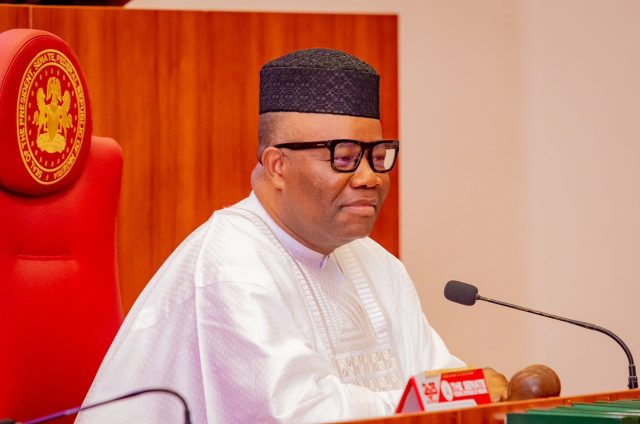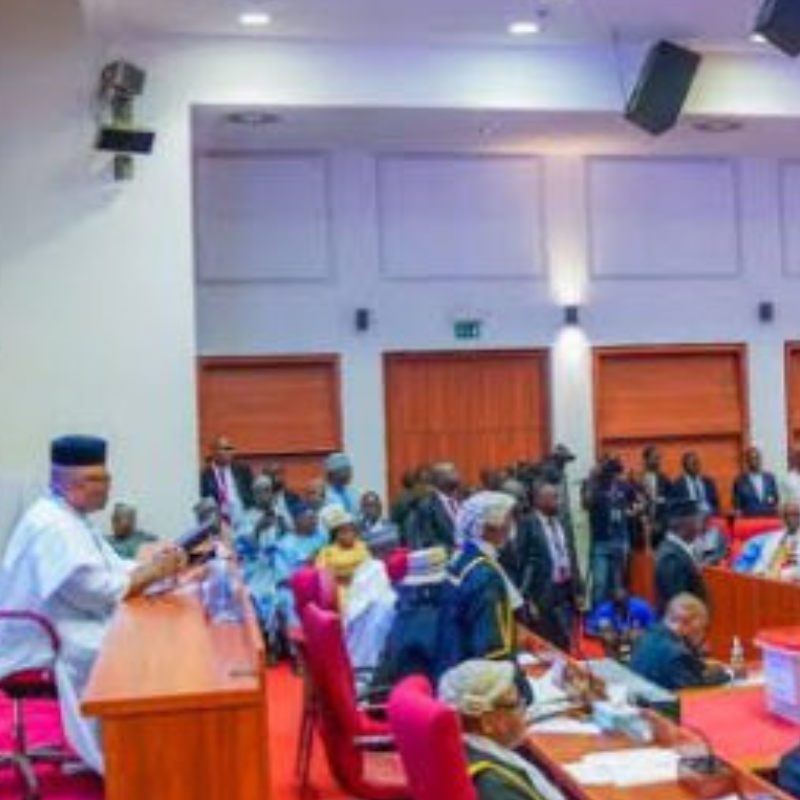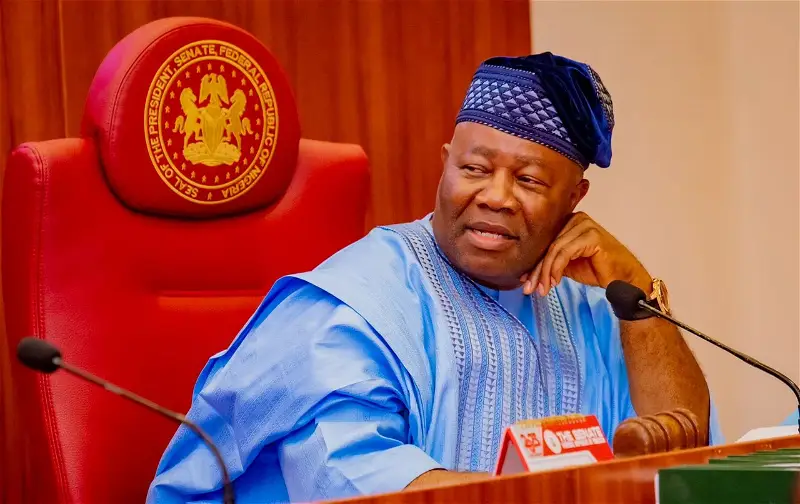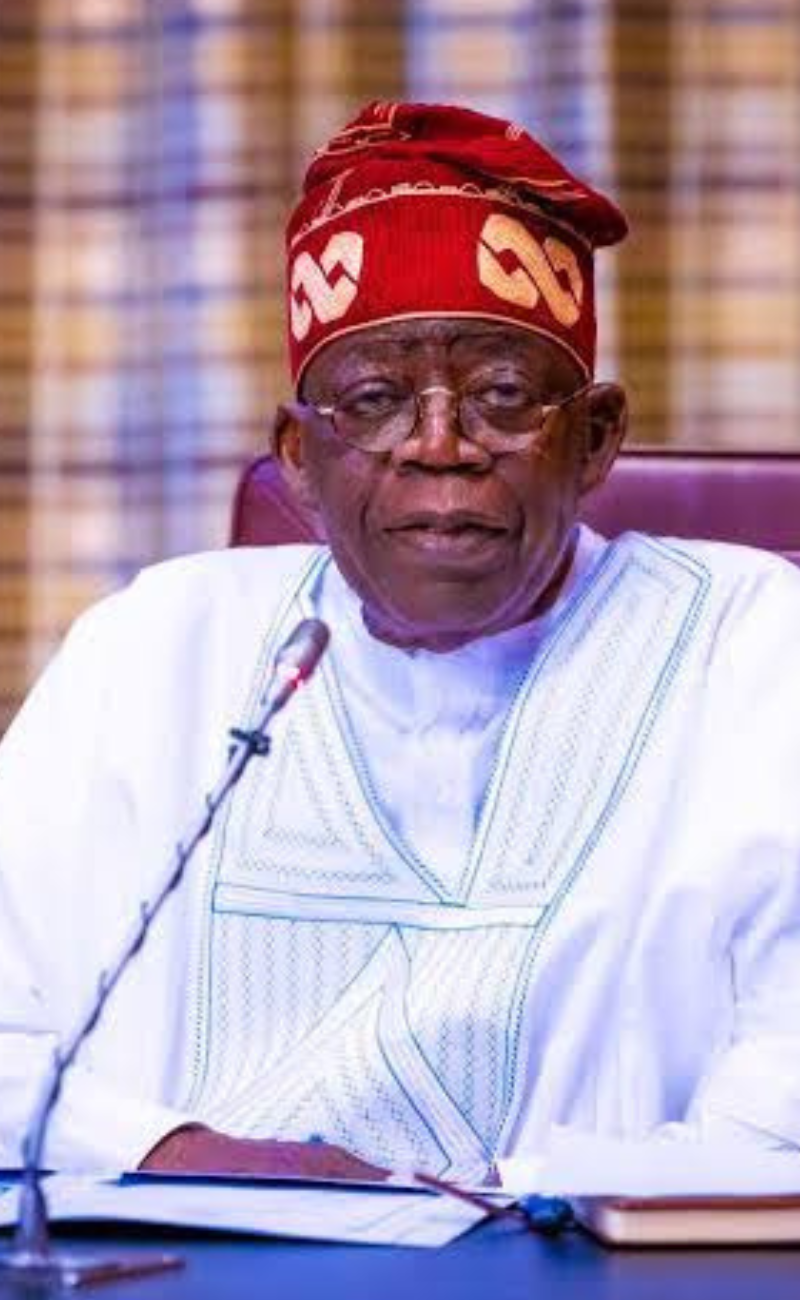Akpabio also revealed that the senate had acted on 26 executive bills, describing the process as a healthy balance of “cooperation and oversight”

The President of the Senate, Godswill Akpabio, has strongly defended the independence and productivity of the 10th national assembly, insisting that those who tag the legislature as a “rubber stamp” arm of the executive do not understand the true role of parliament in a democracy.
Speaking on Thursday at a special joint session of the national assembly to commemorate Nigeria’s 26 years of uninterrupted democracy, Akpabio said the legislature has demonstrated “a renewed vigour” in tackling the country’s challenges through purposeful lawmaking and institutional accountability.
Akpabio made this remark while addressing an audience that included President Bola Ahmed Tinubu.
He said, “The national assembly is not a rival to the executive. We are partners in governance, co-stewards of the people’s trust.”
He noted that the strength of any democracy lies not in conflict between arms of government but in collaboration that produces results for the citizenry.
Akpabio gives senate record
Akpabio used the occasion to showcase what he described as the 10th Senate’s unprecedented legislative output since its inauguration two years ago.
“In two years, the senate has introduced a total of 844 bills, a figure never before achieved in this time frame,” he announced. “Out of this, 107 bills are at the committee stage, 206 are awaiting first reading, 409 have scaled second reading, and 96 bills have been passed.”
Of the 96 bills passed, he said 52 have been assented to by the president, making them enforceable laws. He listed notable bills such as those establishing the National Education Fund, granting autonomy to local governments, setting up regional development commissions, reforming the tax system, and restructuring universities and agricultural institutions.
Akpabio also revealed that the senate had acted on 26 executive bills, describing the process as a healthy balance of “cooperation and oversight,” contrary to the perception that the legislature merely endorses executive proposals.
Petitions and public trust
Beyond lawmaking, the senate president highlighted the legislature’s responsiveness to citizen concerns, citing the receipt of 80 petitions from the public and civil society within the two-year period. Of these, 18 petitions have been fully adopted and acted upon.
“Of these, 18 petitions have been fully adopted, providing redress, transparency, and institutional accountability,” he added.
Remembering June 12, pushing for a museum
Turning to the theme of Democracy Day, “26 Years of Democracy:Renewing Our Commitment to National Development,” Akpabio paid tribute to the heroes and martyrs of the June 12, 1993 election, describing it as a turning point in Nigeria’s democratic awakening.
“On June 12, 1993, the torch of the long march to freedom was lit. Nigerians stood up to say: “Our voice matters. Our vote counts.
“However, the light was extinguished on June 24, 1993, when a terse statement declared that the will of the Nigerian people—freely expressed in the historic June 12 Presidential Election—had been annulled. Tears, rage, and hope poured into the streets,” he added.
He urged President Tinubu to consider legislation that would establish a June 12 Museum, a symbolic archive to preserve the stories, struggles, and sacrifices that birthed Nigeria’s democracy.
Reassuring commitment
In closing, Akpabio reaffirmed the legislature’s dedication to the Nigerian people, pledging that the national assembly will continue to enact policies that “uplift the poor, empower the youth, grow the economy, and defend national dignity.” he said.
“We owe it to those who fought. We owe it to those who fell. We owe it to those who still believe. May we never again betray the hope that was once betrayed, And may we never lose the freedom that was once denied.”




